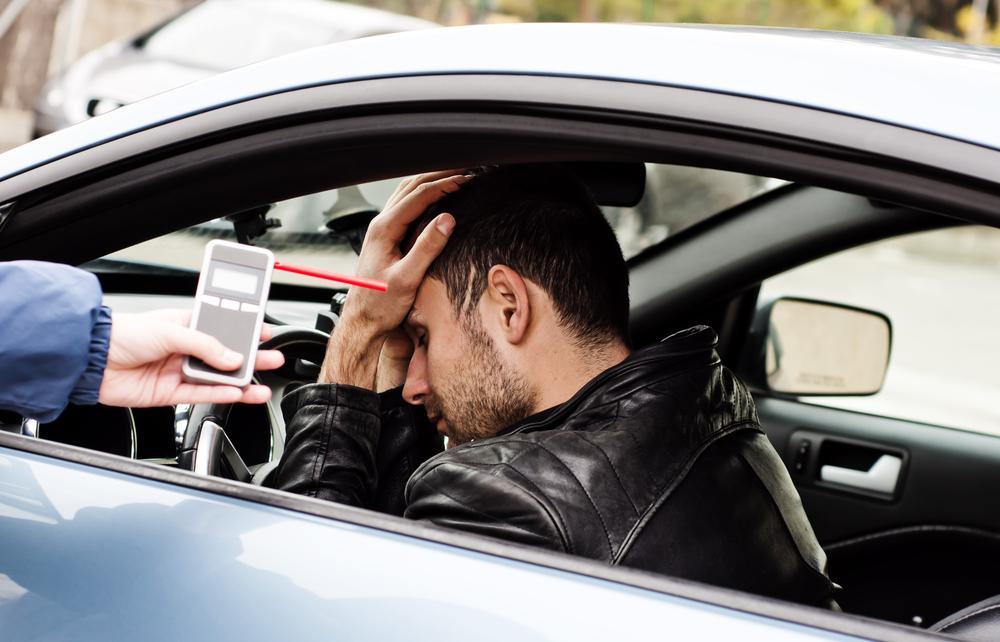Disclaimer: the material presented in the article below should only be considered as a general overview regarding driving under the influence. Should you, or anyone you know, find yourself getting arrested for or charged with driving under the influence, it’s best that you speak to a DUI attorney immediately. He/she can help you decide on the best legal actions to take.
You’ll face severe consequences and penalties if you’ll be driving drunk, and this is no secret. People still drive even when intoxicated and risk getting arrested for it. In fact, in 2010 alone, more than 1.4 million Americans have been arrested for driving under the influence. Almost one-third of all traffic-related deaths in America are caused by drunk driving, and one person dies from a drunk driving accident in every 48 minutes. If these statistics still don’t convince you to never sit behind the steering wheel if you’re drunk, let us show you what alcohol does to the brain and why you shouldn’t drive drunk.
12 Things Alcohol Does To The Brain and Why You Shouldn’t Be Driving
What happens to your brain when you drink alcohol?
Cerebral Cortex
When you’re drunk, you become less inhibited because alcohol depresses your behavioural inhibitory centres, which can be found in your cerebral cortex. The information from your eyes, ears, mouth, and other sensory organs is slowed down. Your thought processes are also inhibited, which makes it difficult for you to think clearly. This is why drunk drivers almost always end up crashing because they can’t react to things immediately, if this happens you will require a DUI lawyer in Georgia which will help in the legal case.

Cerebellum
Alcohol makes you stagger because it affects your brain’s centre for movement and balance which is controlled by your cerebellum. That’s why most drunk people walk differently.
Medulla
Alcohol makes you sleepy. This is why some drunk drivers can’t remember falling asleep on the steering wheel. Alcohol slows down your breathing and lowers your body temperature which, when done excessively, can cause death.
Hypothalamus & Pituitary
Alcohol inhibits your nerve centres that are found in your hypothalamus, which makes you more sexually aroused but means that you generally perform poorly.
What happens when you get caught drunk driving?
Fees and Fines.
If it’s your first time to get caught driving under the influence, you would be required to pay at least a $500 fine. You would also need to pay for the reinstatement of your driver’s license. Lastly, you’d even need to pay a lawyer’s fee which can cost thousands of dollars.
Driver’s License Suspended
The DMV(Department of Motor Vehicles) will suspend your license, even if the court doesn’t convict you. The suspension may last from 30 days to a year.

Imprisonment
If you’re a first time offender, the court will have you imprisoned for six months at most. And if you’re someone who’s been caught for driving under the influence before, you’ll be detained for several months or up to a year.
Ignition Interlock Devices (IID)
When you’re arrested for DUI, some states will require you to install an Ignition Interlock Devices (IID). It’s a device that detects your BAC (Blood Alcohol Content), and it won’t allow your vehicle to start unless you blow into and it doesn’t detect alcohol. Once your car starts moving, it will require you to blow into it at random times.
What does your victim feel after a car accident?
Shock
Even if your victim survives the accident, he/she would still most likely retain the feeling sensation. He/she may also be numbed, distressed and agitated for the following days.
Anger
Your victim(s) would feel angry towards you and would blame you for what’s currently happening in their lives. And you can’t blame them, especially if you’ve injured them and caused them to lose their jobs.
Guilt or self-blame
You, as the drunk driver, may feel guilty or blame yourself at some point, primarily if you survive and someone else got injured or killed. You would probably beat yourself up and ask to think about what you could have done differently.
Worry or fear
Your victim may end up worrying or fearing for his/her life after the accident. He/she may not be able to cross the street without help, or wouldn’t be to sit behind the steering wheel again. This may take time to recover, and in the worst cases, he/she may not recover at all.
You may have gotten home safely today after driving drunk, but what if you don’t tomorrow? What if you crashed your car and injured yourself? What if you hurt someone else, or worse, killed someone in the process? Are you going to sleep soundly at night knowing that you destroyed someone’s life because of your recklessness? Alcohol also has serious negative impacts on your brain; you may not be able to control your actions. This is why you should never drink and drive. What if something worse than crashing you’re into a tree happens, would you be able to live with yourself?
Joanne Reed

Joanne Reed has been writing about law and business for almost a decade and is currently writing her next big law project.
She is an avid sports fan and loves watching games if she has free time.
Disclaimer: Paid Insertion. Read more about disclosure here.

One Response
Hello. Great job. I did not expect this. This is a remarkable story. Thanks!